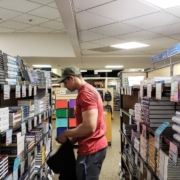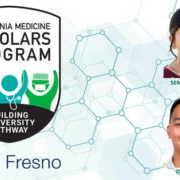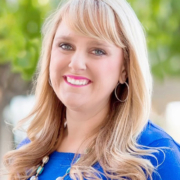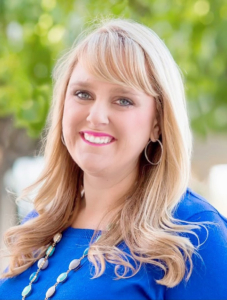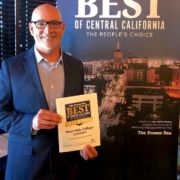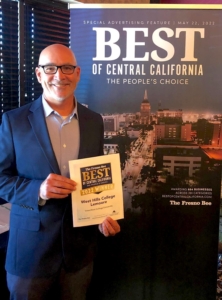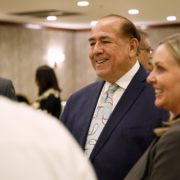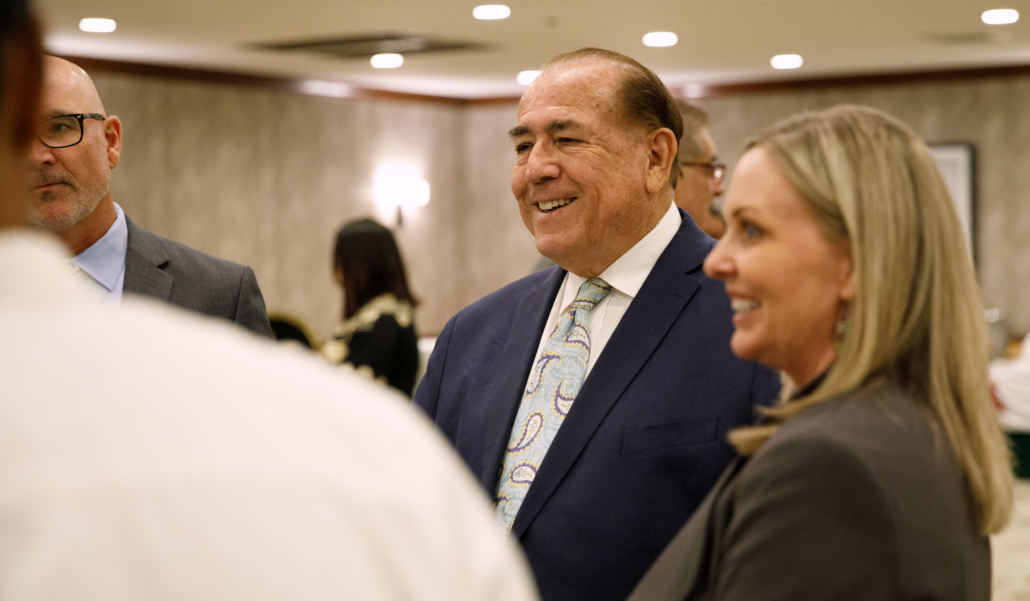California Medicine Scholars Program-SJV: a collab of UCSF Fresno and other CVHEC members
A valley wide collaborative by Central Valley Higher Education Consortium partners and Sen. Melissa Hurtado (D-Sanger) has led to a major accomplishment for the Central Valley with the launch this summer of the California Medicine Scholars Program (CMSP) and the designation of the University of California, San Francisco – Fresno as one of four Regional Hubs of Healthcare Opportunity (RHHOs) in the state.
Established under Senate Bill 40, CMSP is designed to pave the pathway to medical school for community college students, increase the numbers of underrepresented minority physicians and result in more physicians and allied health professionals settling in the region. The budget bill signed in June by Governor Newsom includes $9,975,000 to establish the regional pipeline system for community college students who want to go to medical school.
“We are delighted to announce the establishment of the California Medicine Scholars Program (SJV-CMSP) hub at UCSF-Fresno, one of four hubs in the state authorized by SB 40 and authored by our very own Sen. Hurtado,” said Dr. Benjamín Durán, CVHEC executive director.
“Establishing a hub in the Central Valley helps build a culture that promotes equity of opportunity in medicine and pre-medicine among eligible, local community college students,” Duran said.
CVHEC plays key role
Sen. Hurtado, who introduced the legislation last year in response to a provider shortage in the Central Valley, said a key factor in the Valley being the only region initially guaranteed a hub in the final legislation was Duran’s collaboration and advocacy on behalf of CVHEC partners in the early planning meetings.
“The Central Valley is experiencing a healthcare provider shortage,” Sen. Hurtado said. “Patients face longer than average wait times to see a physician and have to drive long distances to access the nearest hospital. Thanks to the hard work of Dr. Duran and the Central Valley Higher Education Consortium on the passage of the California Medicine Scholars Program, many students in the Valley will be given the opportunity to live their dream and attend medical school.”
CVHEC rallied leaders of the Consortium that is made up of 30 institutions of higher education in the nine-county region from Stockton to Bakersfield to support UCSF-Fresno as one of the state’s four hubs authorized by the legislation for the program. UCSF-Fresno, a regional campus of the UCSF School of Medicine, joined the Consortium as its most recent member in May.
Duran credited Dr. Kenny Bahn, assistant dean for Undergraduate Medical Education at UCSF Fresno, who headed the Central Valley team that developed the application for funding in collaboration with CVHEC partners — California Health Sciences University, Fresno State and regional community colleges — that will feed the medical pathways in the valley.
He also praised the CVHEC community college leaders who responded to his invitation in January to support Sen. Hurtado’s bill.
“These collaborative efforts will hopefully lead to more physicians and allied health professionals settling in the region,” Duran said.
Statewide, the CMSP will be housed at the Foundation for California Community Colleges. In addition to UCSF-Fresno serving as the lead agency for the San Joaquin Valley Regional Hub of Healthcare Opportunity (SJV-RHHO), the state’s three other regional hubs of will be based at the UC Davis School of Medicine, UC Riverside School of Medicine and UC San Diego School of Medicine
The four hubs will bridge gaps between community colleges, four-year universities, medical schools and community-based health clinics and organizations to provide greater pre-medical opportunities for students and help diversify California’s primary care physician workforce, UCSF-Fresno said in its announcement of the hubs and funding June 28.
Addressing physician shortage
All hubs reside in regions underserved in health care and are currently experiencing a physician shortage. Each grantee will receive $1.6 million for the first three years ($540,000 annually) with additional funding ($250,000) available in the fourth year for sustainability. Funding supports the creation of the RHHOs and provides a strategy to increase the number of underrepresented minority physicians and ultimately reduce disparities in health and health outcomes across the state.
The SJV-RHHO launched July 1, creating the first pre-medical diversity pathway from community college to primary care physician program in the San Joaquin Valley under the name California Medicine Scholars Program (SJV-CMSP).
Dr. Banh said the vision of the SJV-CMSP is to increase the numbers of underrepresented minority physicians through a collaborative partnership effort.
“This program fulfills a need in the pathway to practicing physician at the community college level,” Dr. Banh said. “The mission specifically is to increase the number of regional community college students who transfer to and are accepted into medical schools from California State University, Fresno.”
The SJV-CMSP Network
In addition to UCSF Fresno, CHSU, Fresno State and CVHEC, the SJV-CMSP partners include: the State Center Community College District (Fresno City College, Clovis Community College, Madera/Oakhurst Community College, Reedley Community College); College of the Sequoias (Hanford, Tulare and Visalia campuses); the Merced Community College District (Merced and Los Banos campuses); the West Hills Community College District (Coalinga, Firebaugh and Lemoore campuses); the Yosemite Community College District (Columbia College and Modesto Junior College); the California Area Health Education Center Program; the Central Valley Health Network; and the Valley Health Team Family Residency Medicine Program.
“Developing a high-quality undergraduate medical education program and the foundation for a future medical school requires that enough qualified students from the region are available to be recruited to the program,” said Michael W. Peterson, MD, associate dean for Undergraduate Medical Education and Research at UCSF Fresno.
“Improving efficiencies and developing financial sustainability of pathway programs are essential to continue the tremendous momentum and success we have accomplished to date with programs like the Doctors Academy built by our very own Katherine A. Flores, MD, and to expand to serve community college students with the SJV-CMSP,” Dr. Peterson added.
To better coordinate and increase the success of existing pathway programs, SJV-CMSP and future programs, Associate Dean Peterson and Assistant Dean Banh also announced that UCSF Fresno created an Office of Health Career Pathways within the Department of Undergraduate Medical Education.
Named as the office’s inaugural director was Emy Lopez Phillips, EdD, who is an alumna of three CVHEC members: Fresno City College, California State University, Stanislaus and Fresno State.
See:

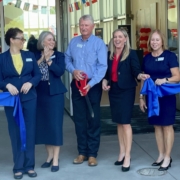
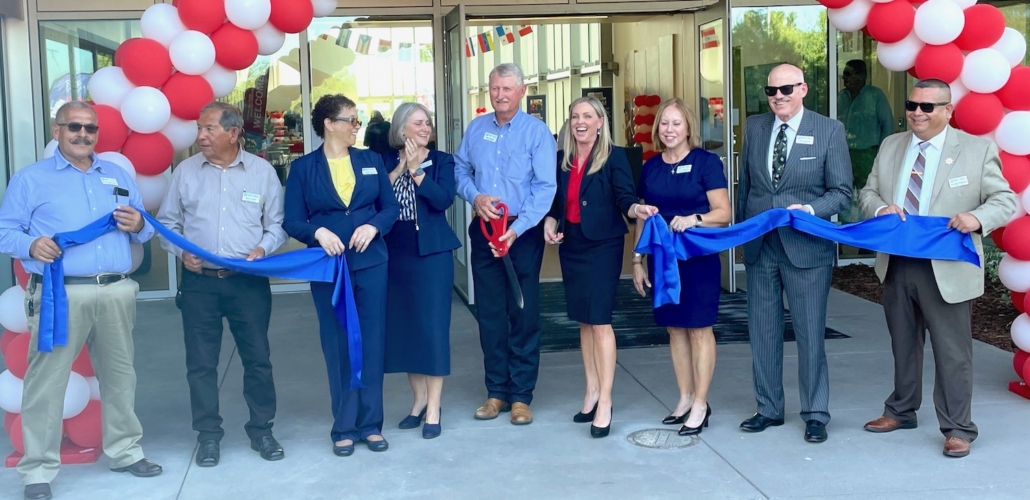
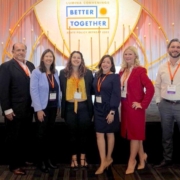
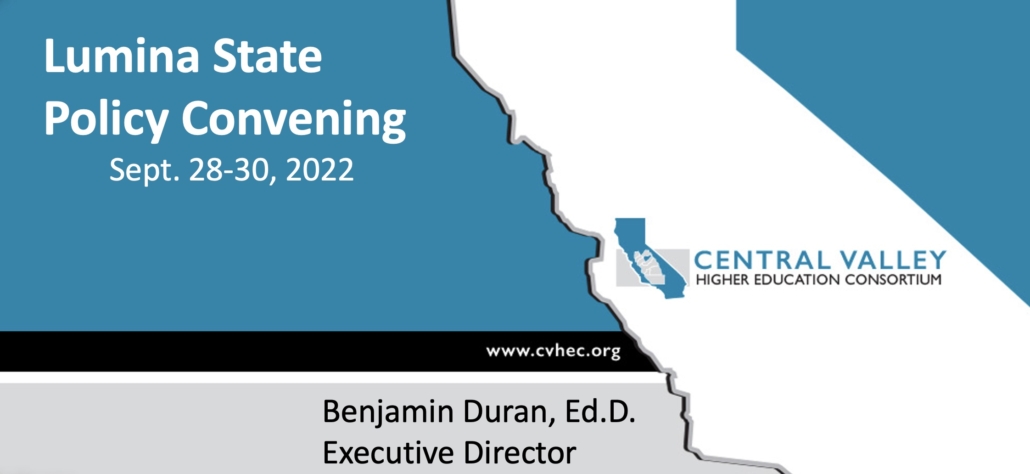
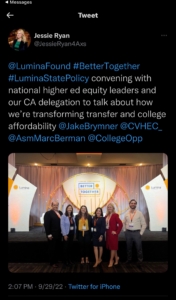
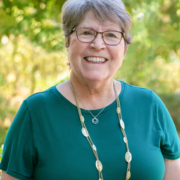
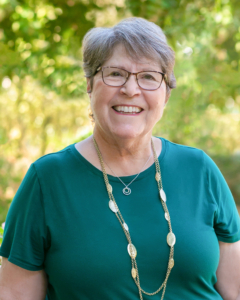 In her new capacity effective October 1, Elaine is responsible for grant writing, management and reporting of grants and sponsored programs, announced Dr. Benjamín Durán, CHVEC executive director.
In her new capacity effective October 1, Elaine is responsible for grant writing, management and reporting of grants and sponsored programs, announced Dr. Benjamín Durán, CHVEC executive director.